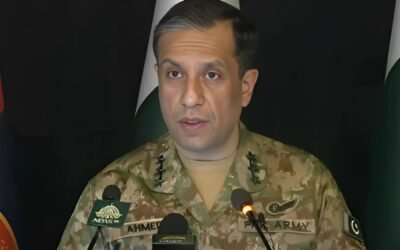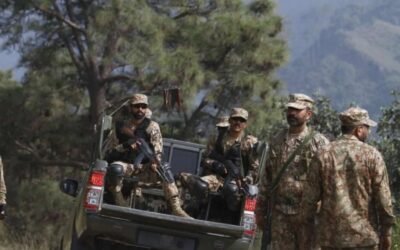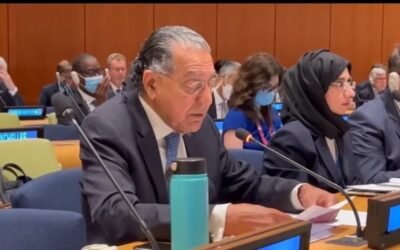In a decisive counterterrorism operation on the night of August 7–8, 2025, Pakistan Army troops eliminated 47 heavily armed terrorists attempting to infiltrate from Afghanistan into Balochistan’s Zhob district. According to ISPR, 33 were neutralized during an initial assault in Sambaza, followed by 14 more in a second engagement. All were identified as Indian-sponsored Fitna al Khawarij (FAK), a militant network operating from Afghanistan.
Resurgence of Terrorism and Swift Military Response
The operation comes amid a worrying resurgence of terrorism in both Balochistan and Khyber Pakhtunkhwa (KP), where extremist groups have sought to exploit porous borders, sectarian fault lines, and local grievances. These militants have repeatedly targeted security installations, law enforcement, and civilians.
The Army’s response was swift and methodical. Troops displayed a relentless spirit, pressing forward despite difficult mountainous terrain and hostile fire. Their precision in intercepting and dismantling the infiltration attempt prevented what ISPR said could have been “large-scale terror-related disruption” across the province. The commitment, discipline, and morale on display reflected a force that refuses to be worn down by repeated enemy provocations.
The troops who led this daring mission hail from one of Pakistan Army’s most storied infantry formation—renowned for being “Zindādil”, meaning ever alive in spirit. It is a creed that demands unflinching courage, tireless resolve, and a refusal to yield in the face of adversity. In Zhob, that ethos was not just spoken—it was lived. Every maneuver, every exchange of fire reflected the regiment’s deep-rooted belief that the defense of the homeland is not a duty to be endured, but a calling to be embraced with vitality and honor.
🚨#ISPR 47 Terrorists Eliminated!
Following the successful engagements by security forces in area of Sambaza, Zhob District, #Balochistan on 7-8 August 2025, during which thirty three khwarij were sent to hell; on night 8/9 August 2025, a deliberate sanitisation operation was… pic.twitter.com/YQzCr6s56Q
— Pakistan Armed Forces News 🇵🇰 (@PakistanFauj) August 9, 2025
India’s Role: Backing Proxy Factions
The Pakistani military maintains that these Khawarij militants, along with Fitna al Hindustan, receive direct sponsorship from India to destabilize Pakistan’s western provinces. In May, Islamabad blamed New Delhi for orchestrating a suicide attack on a school bus in Balochistan, killing children and teachers.
Officials have pointed to recovered communications, funding trails, and captured operatives’ testimonies as evidence of India’s covert hand. Such sponsorship, they argue, is part of a broader hybrid warfare strategy aimed at derailing major economic initiatives—especially CPEC projects critical to Pakistan’s long-term growth.
Security Landscape: The Stakes in Balochistan, and KP
Balochistan’s strategic position—bordering Iran and Afghanistan, and home to the deep-water port of Gwadar—makes it both a key economic hub and a target for insurgent violence. In KP, tribal districts remain vulnerable to cross-border infiltration, with militants exploiting rugged geography to evade detection.
If left unchecked, this wave of terrorism could inflict severe economic losses, undermine public confidence, and threaten the territorial integrity of Pakistan. Successful infiltration by hostile actors risks not only physical destruction but also the erosion of the state’s authority in these sensitive frontier zones.
You May Like To Read: The SIFC Model
Silence from So-Called Activists
The resurgence of militant activity has also reignited debate over the role of certain local figures. Mahrang Baloch, a Social Activist, has been criticized for her failure to condemn attacks by Fitna al Hindustan and proxy terrorists organizations, and other armed groups. The activism—ostensibly in defense of human rights—has, according to official narratives, often mirrored talking points used by separatist fronts.
While Mahrang and her supporters dismiss these allegations as politically motivated attempts to discredit peaceful advocacy, the optics of silence in the face of violent extremism have fueled accusations of tacit alignment with anti-state elements. In an environment where information warfare is part of the battlefield, such ambiguities carry real consequences.
Operational Significance: Securing Sovereignty, and Economic Stability
The Zhob operation’s success carries weight beyond its immediate tactical gains. Eliminating 47 well-armed militants in one coordinated mission sends a clear message to both domestic and foreign adversaries: Pakistan will not allow its sovereignty to be compromised.
Counterterrorism is also directly linked to economic stability. Ongoing instability deters investment, hampers trade, and disrupts infrastructure development. By keeping extremist violence in check, the Army safeguards projects like CPEC, which promise to transform the nation’s economic landscape. The link between internal security and economic resilience is inseparable—one cannot exist without the other.
The Enduring Importance of Continued Operations
These counterterrorism missions, often conducted far from public view, are the first line of defense against both foreign-sponsored insurgency and homegrown militancy. The troops in Zhob embodied the unyielding vitality that Pakistan’s defenders must maintain in the face of persistent threats. Their actions not only protected lives in the immediate term but also reinforced the state’s commitment to a secure, united Pakistan.
If the security forces relent, the consequences could cascade—revitalized insurgencies in Balochistan and KP would embolden separatists, weaken governance, and risk drawing Pakistan into prolonged internal conflict. The cost of vigilance may be high, but the cost of complacency would be far greater.
You May Like To Read: PTI’s Call to Protest on 14th August
Conclusion
The neutralization of Fitna al Khawarij militants in Zhob stands as both a tactical triumph and a strategic warning to Pakistan’s enemies. It underlines the continued threat posed by India-backed proxies and the necessity of a proactive, coordinated military posture.
With adversaries intent on destabilization and some voices at home unwilling to denounce terrorism, the role of Pakistan’s armed forces remains indispensable. Sustained, intelligent, and resolute counterterrorism will not only protect the country’s borders but also preserve the economic and political foundations on which Pakistan’s future depends.




























